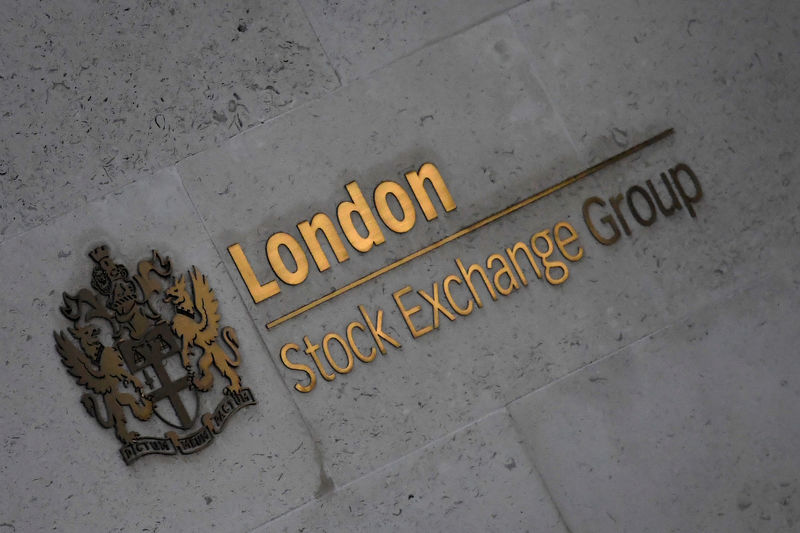By Tom Arnold
LONDON (Reuters) - World shares pared back losses on Wednesday as positive earnings in Europe from Credit Suisse (SIX:CSGN) and investor support for SAP helped soothe worries that China has put broader stimulus on hold.
European shares crept into positive territory, with the pan-regional STOXX 600 index edging up 0.1 percent to reach its highest level since Aug. 1. Germany's DAX shrugged off a business survey showing German business morale deteriorated in April, to rise 0.8 percent.
"The big picture is the tussle between Asia, which has pulled back, and America, where the markets made new highs, so Europe is probably going to be a bit torn between the two," said Andrew Milligan, head of global strategy at Aberdeen Standard Investments.
"The positive for Europe is Credit Suisse's earnings, which could reignite upbeat sentiment and show that some financials are doing well despite weak European economic sentiment and the problems from very low interest rates,” he added.
Credit Suisse's shares rose 2.7 percent after the bank posted an unexpected rise in earnings and said it was cautiously optimistic about the second quarter following a challenging start to the year.
It posted a net profit of 749 million Swiss francs ($734 million) for the first quarter of 2019 as larger-than-expected wealth management gains offset investment banking declines.
Results from UBS Group AG and Barclays (LON:BARC) follow on Thursday and Deutsche Bank (DE:DBKGn) on Friday.
Top performers on the STOXX 600 were payments company Wirecard and business software company SAP, which also boosted the DAX.
Wirecard jumped 8 percent after Bloomberg reported that Japan's SoftBank was looking to invest about 900 million euros ($1 billion) for a minority stake in the company.
SAP climbed 9.0 percent, putting it on target for its best day since November 2008, as U.S. activist investor Elliott revealed a 1.2 billion euro stake in SAP and said it supported a new management efficiency drive. That followed the company setting new medium-term profit targets after reporting a first-quarter operating loss that chiefly resulted from a restructuring charge.
Wall Street was looking set for a subdued start after the Nasdaq and S&P 500 indexes reached record closing highs overnight.
Boeing (NYSE:BA) shares rose 0.8 percent in premarket before its results on Wednesday as investors awaited details on the impact of the 737 MAX jet groundings on the planemaker’s earnings.
In Asia, the biggest regional loser was South Korea's KOSPI, which fell 0.9 percent, with Samsung Electronics (KS:005930) down 1 percent.
Investors shrugged off the government's proposed supplementary budget aimed in part at supporting exports from the country and focused instead on a warning from chipmaker Texas Instruments (NASDAQ:TXN), which said it expects a slowdown in demand for microchips to last a few more quarters.
Chinese equities flitted between gains and losses as investors debated whether Beijing would slow its pace of policy easing following stronger-than-expected first-quarter economic growth.
The MSCI world equity index, which tracks shares in 47 countries, was broadly flat, down 0.03 percent in early afternoon European trade.
SRI LANKA
Sri Lanka's main stock index traded at its lowest since December 2012 following the deadly Easter Sunday attacks that killed more than 350 people. Analysts have said the country's economy might need IMF assistance to overcome the devastation from the incident.
The Turkish lira hit its weakest intraday level against the dollar since mid-October as investors worried about risks generated by challenges to Istanbul election results and strains in relations with the United States.
Market attention is also focused on the Turkish central bank's rate-setting meeting on Thursday, when it is expected to keep its policy rate unchanged at 24 percent.
The U.S. dollar index, which tracks the greenback against a basket of six major rivals, remained close to a 22-month high, following strong U.S. housing data. It stood at 97.620 after rising to 97.777 overnight, its highest since June 2017.
The Aussie dollar was the biggest mover among the main currencies, falling to a 1-1/2 month low of $0.7027.
After jumping to 2019 highs earlier this week, oil prices eased on Wednesday on signs that global markets remain adequately supplied.
Brent traded down 0.34 percent at $74.26 per barrel, while U.S. crude dipped 0.39 to $66.04 a barrel.
Gold prices were up 0.1 percent to $1,270.60 per ounce, up from the previous session's four-month low.
